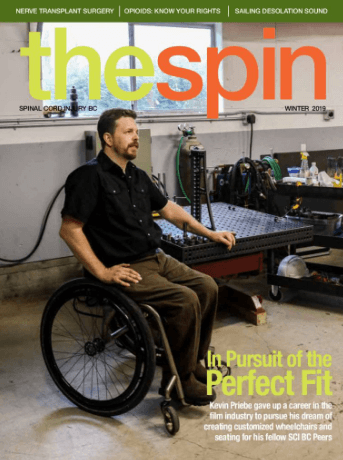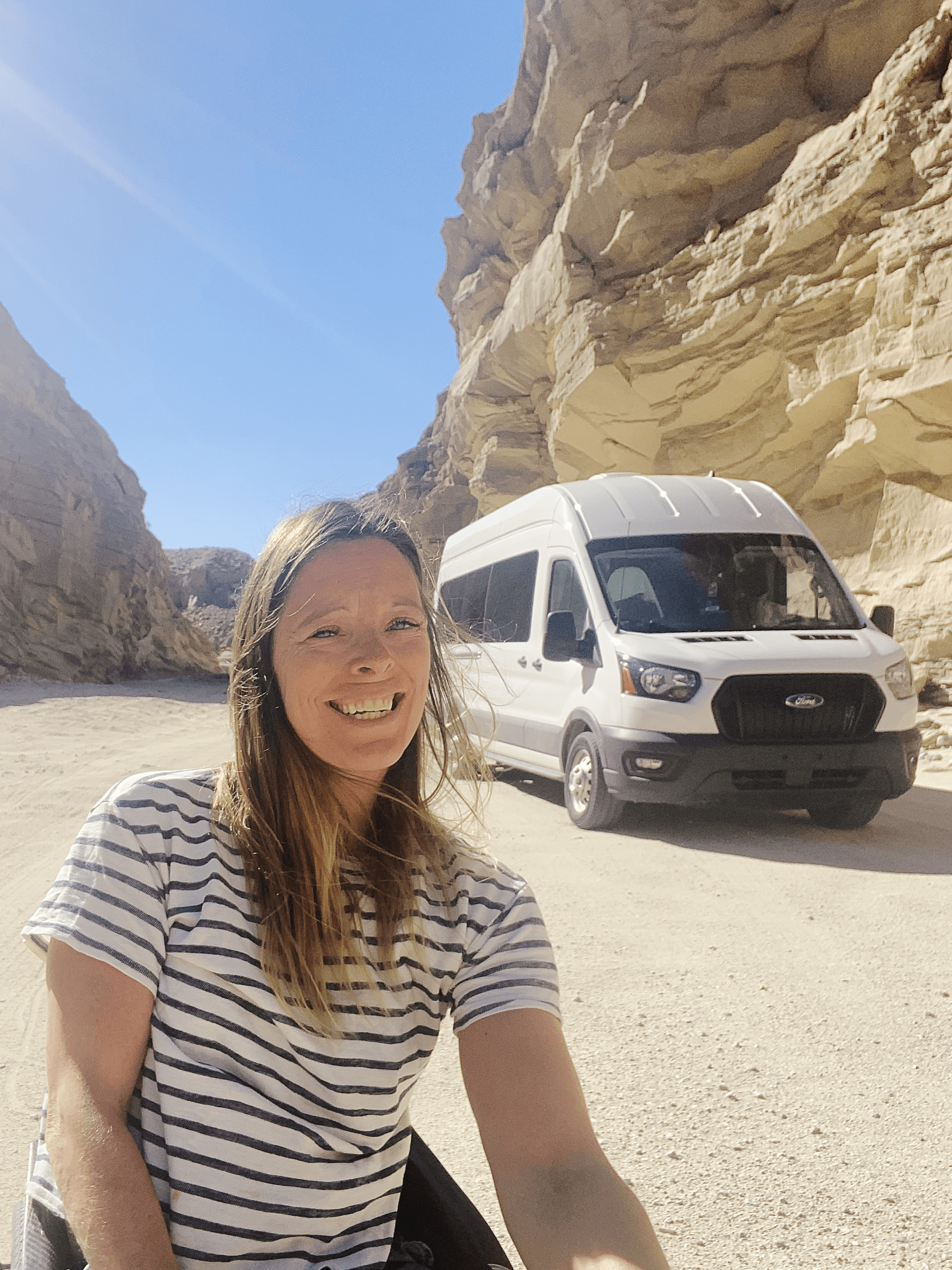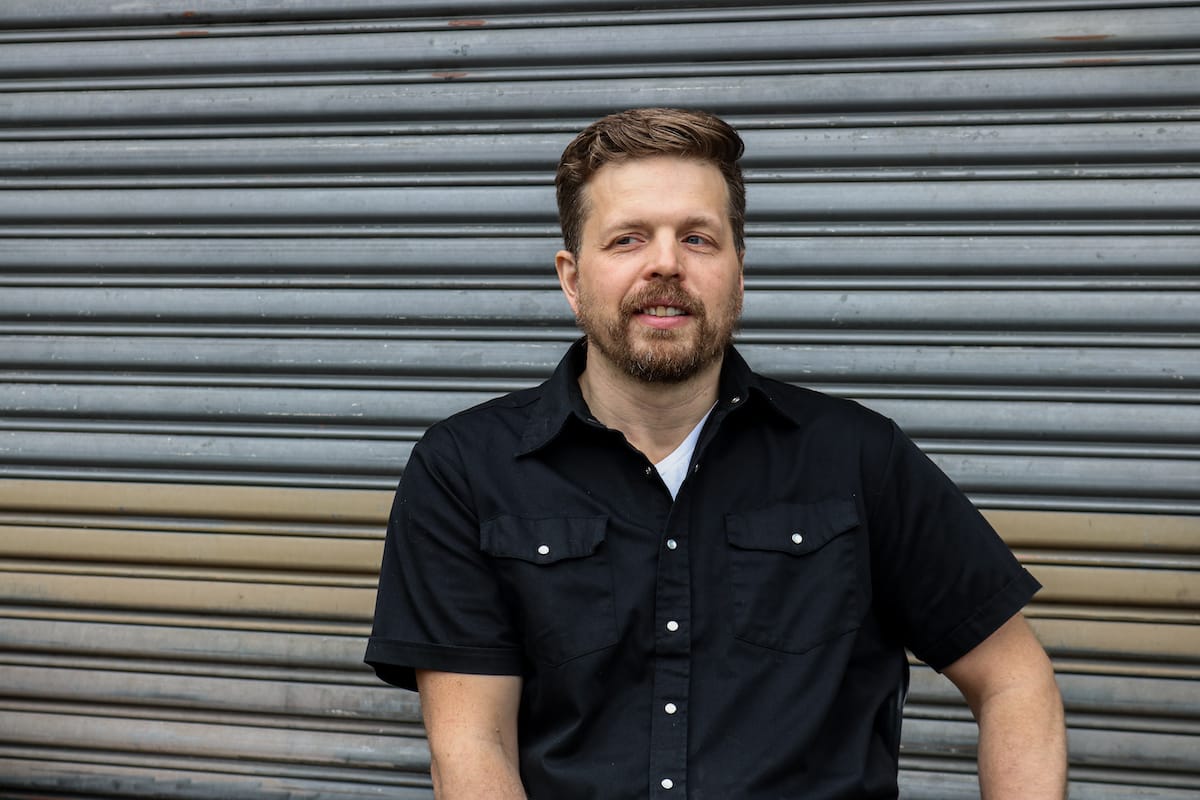
It was a full house at Vancouver’s Andina Brewing Company during our annual Guys’ Garage earlier this summer. Despite the crowd, Robert Smeltzer, an incomplete paraplegic, stood out from his Peers because of how tall he is in his chair. He was literally head and shoulders above the crowd.
At 6’2”, Smeltzer is a tall man on his feet. In particular, his legs and arms are so long that he really has never been able to find a wheelchair that’s high enough to be comfortable for him. Even his latest chair, an aluminum Ti Lite extra large with huge 26 inch wheels, forced him to bend radically at the waist in order to wheel.
“This was the case even though the extra large chair was fully adjusted to its top height,” says Smeltzer. “Many inches of cushion and other materials were added
and placed where necessary on the seat to mitigate this awkward positioning.”
Last year, when he had the opportunity to have his ride customized by Kevin Priebe, a fellow SCI BC Peer, he jumped at the chance.
“I attended an SCI BC event at the Blusson Spinal Cord Centre, and it was impossible to miss Kevin’s own extraordinary chair with its massive wheel customization and titanium frame,” says Smeltzer. “Kevin quickly assessed that my extra large chair wasn’t even close to being a workable fit, and determined that my leg/arm length was the equivalent to a person 6’6”. So we loaded the chair into his van and the work began in his shop.”
Priebe modified Smeltzer’s frame by adding six inches of welded strut material to the brackets underneath the chair, which determine the height. He also modified the front tubes that join the foot platform to the rest of the frame. To properly balance the entire build, he added larger castor wheels.
“The end product was an increase of nine inches to the height of the chair and several inches to the wheelbase,” says Smeltzer. “Not only is the entire ensemble now completely ergonomic, it is as smooth-operating as is possibly imaginable, courtesy of artisan-calibre craftsmanship and the use of only top-end bearings and other materials. It’s a pleasure to use.”
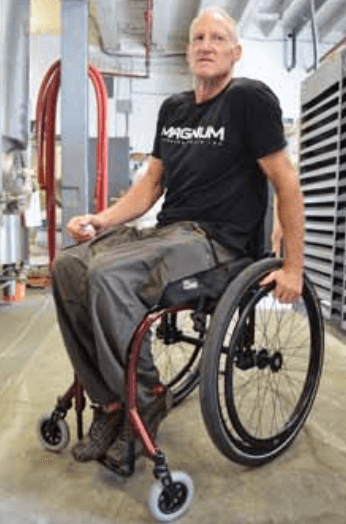
Clearly, this wasn’t Priebe’s first kick at the can when it comes to customizing a mobility device.
A T3 paraplegic, he was injured 26 years ago when he was an 18-year-old living in Pitt Meadows. Like many Peers, he embraced sport as a way of dealing with his injury and rehabilitation. He first became a fierce competitor in sprint kayak and canoe, and then got hooked on cross-country skiing about ten years ago. Unsatisfied with the equipment he was using, he set out to build something better, using skills his father had taught him along with knowledge he’d acquired as a mechanical apprentice before his injury.
“I built my own seating, which led to a ski, then my own chair,” says Priebe.
That was the beginning of Priebe’s “hobby” as a custom mobility equipment fabricator. Since then, he’s built his own wheelchairs and specialized sport seating, and taken on similar projects for a growing number of Peers. Along the way, he acquired more and more specialized equipment for his shop, along with new skills and even training at BCIT.
For years, he balanced fabrication with his job as a well-known special effects guru in the motion picture industry. It was a job that he excelled at (among his achievements is a Leo Award, a provincial industry honour, for makeup and special effects in a Second World War film called The Remembrance). But at one point, he realized his true calling was custom mobility equipment fabrication.
“I needed a change of direction; to find a new path,” says Priebe. “I loved the buzz being part of the film hubbub, but with all the hours on set I could see the end of my film career approaching.”
In 2018, he took the first of several bold steps to make his dream a reality.
“It all started last year with putting pen to paper. I needed to somehow transform a hobby into a viable business and learn how to blaze a new trail. The first step was writing a business plan to test its viability on paper. I needed to review the existing market, find the actual numbers, and determine if they would work.”
And that’s where the Community Futures Entrepreneurs with Disabilities Program (EDP), which provides assistance to entrepreneurs with disabilities to start or grow their businesses, came to his assistance.
“It was no free ride,” says Priebe. “We worked together for months. I can tell you this—I now know the market and my business!”
The next priority was finding funding, and stepping up to the plate was the Business Development Bank of Canada, or BDC. Priebe had made a decision to share a home in Maple Ridge with his aging parents, and make good use of the property’s sizable shop. BDC provided funding for renovation, tools and equipment that Priebe needed to get his enterprise off the ground.
He also credits WorkBC Assistive Technology Services and the Neil Squire Society for their assistance with providing work place assessment and advice.
Following all of this, he made the bold move of incorporating Society Wheelchairs Limited—a company that specializes in building and modifying wheelchairs, seating and sports equipment, all customized to truly fit the size, shape and needs of its owners.
“We are all about fit, form and finish,” says Priebe. “What that means is that our wheelchairs are an extension of who we are. It’s important to us that our clients’ lives are improved by making products that are designed to meet their needs and maximizing comfort through design; that our clients project confidence and self esteem. Our goal is simply to improve quality of life through innovative wheelchair design.”
Technology, he adds, is central to his vision of meeting clients’ needs. He employs computer modelling, CAD and other technologies to arrive at designs that truly make a difference in peoples’ lives.
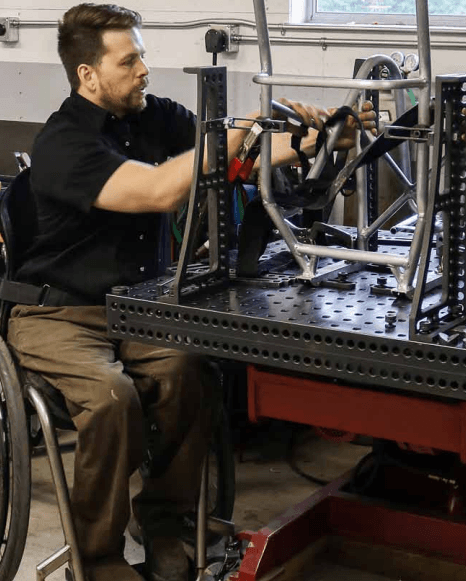
“We are refining a process that is helping us to bridge the gap for the equipment fitting, using technology and ingenuity,” he says. “We believe that, as we refine the process, it’s going to become a game changer for our clients.”
Already, Priebe’s shop is crowded with projects. Yet hurdles remain. Foremost among them is cost. “Titanium, carbon fibre and aluminum—making wheelchairs, custom seating and sports equipment requires a wide range of materials and equipment,” he says. “Then throw into the mix the need to make the working environment accessible. We just picked up a CNC router for making fitted cushions, moulds and aluminum parts. We’re stretching our budget; the equipment requires rebuilding and upgrading to do what we need. This is no easy task.”
There’s also the formidable task of going head-to-head with an established industry.
“We’re challenging the normal in a mature market and that isn’t easy,” says Priebe. “Systems of manufacturing, supply and distribution are already well-established, and here I come with this novel idea of disrupting the market.”
One way that Priebe is meeting this challenge is by becoming a Community Contribution Company, or CCC, which is a hybrid corporate model established
in BC in 2012 for businesses that bridge the gap between for-profit and non-profit. The CCC is the first hybrid business structure of its kind in Canada, and allows entrepreneurs in BC to pursue social goals through their businesses while generating a profit and providing investment opportunities to like-minded investors.
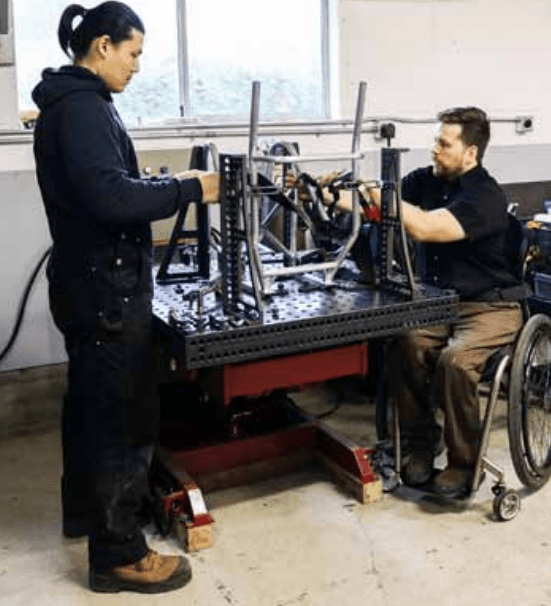
“Making use of this type of social enterprises business model will allow us to tap into programs and resources that we ordinarily couldn’t,” says Priebe.
Priebe’s social business philosophy also extends to finding qualified employees who, like him, have an SCI or other physical disability. It’s yet another reason why he’s striving to make his shop and equipment universally accessible.
“We just were accepted into the New Ventures BC ISI grant program which is so amazing,” he says. “It gives us the opportunity to hire students through both
co-op and outside of programming. We will soon be eligible for Employer Training Programs. One of the biggest hurdles that I’ve struggled with in finding employment is getting accepted into certification programs. To become an employer that is able to offer training and certification in manufacturing… wow! I believe that we have a lot to offer. Building a skilled, dynamic, inclusive team, building what we know—now that’s where it’s at.”
Building a socially-responsible business, being a trainer and employer, and getting the finished product to customers—it’s clearly a huge undertaking. But Priebe is already demonstrating he’s up to the challenge. One reason, he says, is that he continually focuses on time and energy management.
“I would say that everything takes 30 percent more time and energy with the everyday struggles of living with SCI,” he says. “One key for me is simplifying and trusting the right people—I am so lucky to have this amazing network of people working with me. The other big one is to reduce barriers and make those things that are really difficult to do a lot easier. Everything from making a specialized welding table that tilts and rotates, to the simple things like getting hoses, wires and plugins off the floor, made easily accessible for work efficiency.”
We offered Priebe the final word.
“I’d like to give a shout out to my para athletes—swimmers, sprint kayakers, nordic racers, adaptive climbers, those participating in the new Para Boxing program. There have been so many people along the way that I have raced, trained and worked with, and they have all helped me get this business off the ground. Society Wheelchairs is an opportunity for me to take my talents to another level. I have always pushed
myself to try different things and never just accept the status quo, and strive to improve things around me to make life better and more accessible for all of us.”
For more information or to contact Priebe, visit societywheelchairs.ca.
This full article originally appeared in the Winter 2019 issue of The Spin. Read the full version alongside other stories, including:
- Nerve Transplant Surgery
- Opioids: Know Your Rights
- Sailing Desolation Sound
- and more!
Read the full Winter 2019 Issue of The Spin online!
